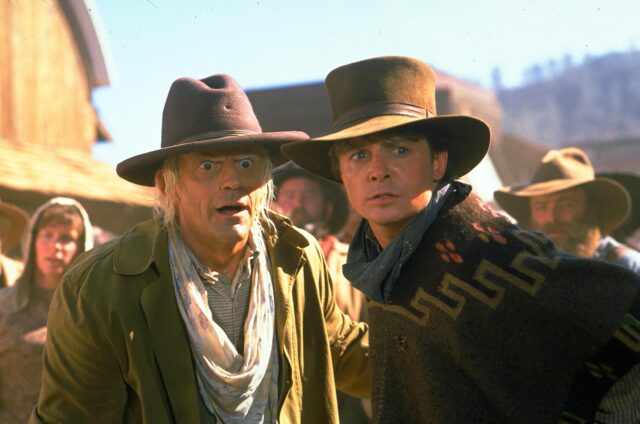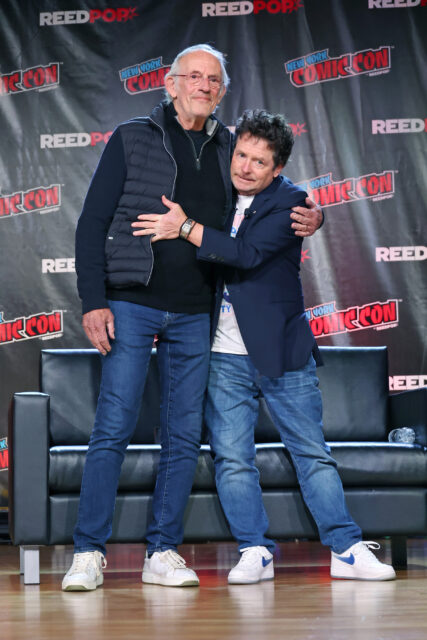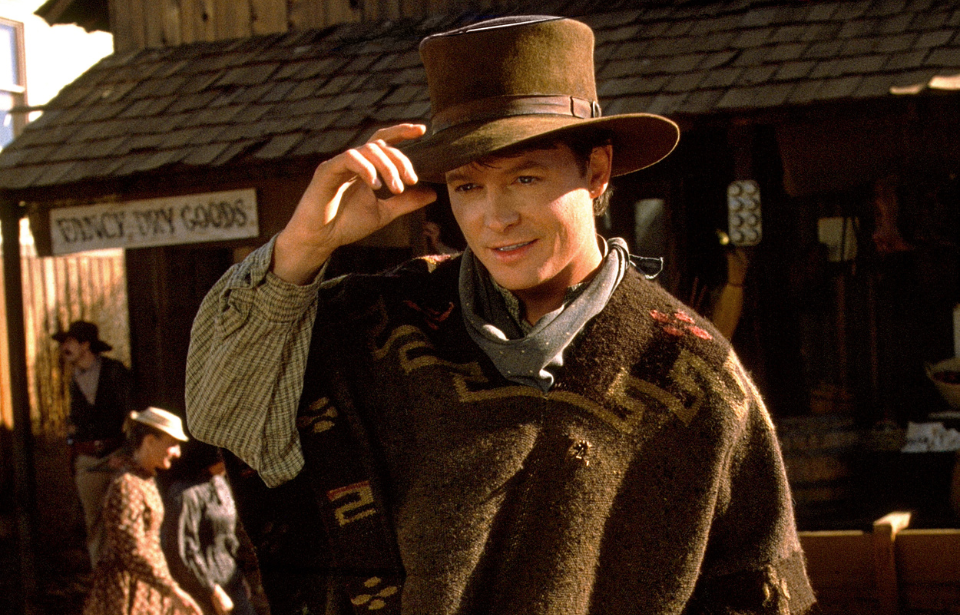Michael J. Fox was one of the biggest stars of the 1980s, establishing himself with his Emmy-winning role as Alex P. Keaton in Family Ties (1982-89). He then cemented himself as a legendary Hollywood actor by starring as Marty McFly in the Back to the Future franchise.
While the films are based in science fiction, the stunts performed were very real. One nearly cost Fox his life, had it not been for director Robert Zemeckis’ quick actions.
Back to the Future Part III (1990)

The third film in the Back to the Future franchise serves as an ode to the great Western movies of the past. In it, Emmett “Doc” Brown (Christopher Lloyd) is sent back to 1885, thanks to a DeLorean glitch. Marty McFly (Michael J. Fox) travels back to that time to try and save him.
While the first two films saw Biff Tannen (Thomas F. Wilson) as McFly’s nemesis, there wasn’t a smooth way to have him sent back a century prior, meaning Back to the Future Part III (1990) saw Tannen’s great-grandfather, Buford, serve as the bad guy.
When McFly arrives in the past, he meets Buford and his gang, who attack and drag the character through the streets with their horses. They bring him to the courthouse, which is under construction, and tie a rope around his neck, in preparation for a public hanging. McFly grabs at the noose and struggles to breathe until Doc saves him by shooting the rope and freeing him from certain death.
The scene’s intense, with McFly almost losing his life. In reality, Fox himself almost met the same fate.
The stunt nearly cost Michael J. Fox his life
In his 2002 book, Lucky Man, Michael J. Fox describes how the scene came to be – and how it almost cost him his life. Given it was filmed close up, the actor had to perform it himself, rather than a stuntman. At first, the crew had him standing on a box, so that he wasn’t actually hanging. Fox was to shuffle his feet on it to make it look like he was swinging from the rope.
Unfortunately, this method didn’t work. “No matter how I shifted my weight, the swinging effect was not realistic, so I offered to try it without the support of the box,” Fox wrote in his memoir.
The actor rehearsed how to safely perform the stunt several times, learning where exactly to position his hands between the rope and his neck to prevent asphyxiation. “This worked well for the next couple of takes,” he wrote. “But on the third I miscalculated the positioning of my hand. Noose around my neck, dangling from the gallows pole, my carotid artery was blocked, causing me briefly to pass out.”
At first, the film crew was unaware that Fox was no longer acting, with him writing, “I swung, unconscious, at the end of the rope for several seconds before Bob Zemeckis, fan of mine though he was, realized even I wasn’t that good an actor.”
Fox was only unconscious for a couple of seconds before Zemeckis saved his life. Had he not acted when he did, the actor could’ve died, and even if he didn’t die, he could’ve suffered a serious brain injury.
Was this the cause of Michael J. Fox’s Parkinson’s diagnosis?

After Michael J. Fox came to, he and the crew thought little of the repercussions the stunt may have had on him. Almost a year later, however, the actor noticed that the pinky on his left hand was twitching uncontrollably. He visited a doctor to figure out what was going on. After running through a list of possibilities, the doctor determined that the most likely cause was some kind of trauma.
He “asked if I’d had any recent episodes of physical trauma. With so many to choose from, I ran through a few of my greatest hits, so to speak, and one incident in particular intrigued him.” The doctor believed there was a connection between the uncontrollable movements and the stunt incident on the set of Back to the Future Part III.
Fox then went to see a neurologist, who couldn’t find anything wrong. Later, he began to suffer more symptoms, including other fingers twitching, as well as stiff and aching muscles. “I was convinced now that my problem was physiological, and not neurological, probably related to the Back to the Future hanging,” he wrote.
More from us: Six Terrific Films That Got Historical Facts Spot-On
After visiting multiple doctors, he finally received a concrete answer; Fox was diagnosed with Parkinson’s disease in 1991, at the young age of 29. The twitching in his left pinkie was his earliest symptom. Fox chose to keep his diagnosis a secret for years and continued to work in Hollywood before finally revealing the news in 1998.
